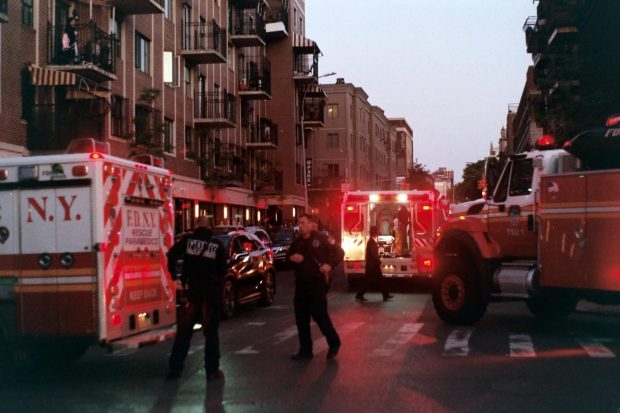Involved in a Motorcycle Accident? Here’s What You Need to Do
All over the world, people enjoy motorcycling for a variety of different reasons. They may use it to get to work or to cross Route 66 during a vacation. If you’re a motorcyclist, you’ll know there’s an added risk when traveling on the road, and even the most experienced riders can find themselves in an accident. If you’re ever involved in one, it’s important to know what you should do about it. If you need some guidance and advice, read on because this article will provide it.

Speak To A Lawyer
If you weren’t at fault for the accident, you may be able to file a personal injury lawsuit against the responsible party. A personal injury lawyer can help you understand your legal rights and options and can represent you in court if necessary. Even if you were partially at fault for the accident, you may still be able to recover damages from the other party. A personal injury lawyer can advise you on whether or not you have a case worth pursuing, and how much money the financial settlement could be.
As of 2022, Denver, Colorado has a total population of 760,049. If you’re asking, ‘Why Should I Hire a Motorcycle Accident Lawyer in Denver?’ the answer is because they can seek compensation for your pain and suffering, lost income, medical expenses, and property damage. An experienced personal injury attorney is more likely to maximize your compensation, and they generally offer free initial consultations.
Get A Medical Checkup
This is one of the first things you should do if you are involved in a motorcycle accident. Even if you don’t think you’re injured, it’s always best to err on the side of caution and get yourself checked out by a professional. Getting a medical checkup will also help ensure that any injuries you do have are documented and can be used as evidence later on.
If you’ve sustained any injuries, your next step may be to get x-rays and scans. They will help your doctor or specialist determine the extent of your injuries and develop a proper medical diagnosis and treatment plan. Again, it’s important to have this documentation for legal purposes.
Exchange Information
Before you leave the accident scene, you should swap information with the other party. You’ll need to get their name, address, phone number, and insurance details. You should also get the other driver’s license plate number, and make sure they are the vehicle owner.
If there are witnesses to the accident, you should get their contact information as well. If possible, get them to verbalize their account of events while you record them on your phone. This will ensure they don’t forget any key details later on.
Call The Police
The Police are required to attend an accident scene if:
- Someone is injured
- A vehicle needs to be towed away
- There is an argument about who was at fault for the incident
The attending Police will produce a Police Accident Report, so take their names in order that you can request it later on. It may determine who was at fault for the accident and also be used as evidence in court.
Document The Scene
Be sure to document the scene of the accident as best you can. This means taking pictures of debris, damage to vehicles (including your motorcycle), and anything else that might be important for your insurance claim. You should also take photos of any visible injuries you may have sustained. They could help support your legal claim in terms of pain, suffering, and trauma.
It’s also important to take pictures of skid marks, potholes, or loose gravel (or anything else that could have contributed to the accident). Some extra examples may be a lack of lighting or untended, overhanging trees.

Notify Your Insurance Company
Once you’ve spoken to a lawyer, the next step is to contact your insurance company. You’ll need to provide them with some basic information about the accident, such as when and where it occurred. Be sure to ask your insurer what types of coverage you have and whether or not your policy includes motorcycle accidents. You’ll also want to find out if there are any deadlines for filing a claim.
If the other driver was at fault, their insurance company should cover the cost of your damages. However, if you were at fault or the accident was caused by a hit-and-run driver, you may be responsible for paying out of pocket.
Gather The Evidence And Calculate Your Losses
The medical reports, witness statements, and your own account of the accident will be vital in claiming back any damages or losses you’re entitled to. They will form the basis of your case, so make sure you have everything you need before starting your claim. If you involve an attorney, they’ll be able to tell you what to collate, and when you need to submit everything.
In terms of calculating your losses, this includes any damage to your motorcycle as well as any medical expenses incurred. If you have had to take time off work, you may also be able to claim for loss of earnings, so you’ll need to compile this documentation too.
Notify Your Employer If You Were Working At The Time
You may be a professional courier or someone who uses a motorcycle for other work purposes. If that’s the case, you’ll likely need to file a workers’ compensation claim, and your employer will need to be aware of the situation. They should have procedures in place for dealing with workers’ compensation claims, so follow these and provide any requested information promptly.
If you have any questions about what you should do, ask your supervisor or HR department for guidance. There are also specialist lawyers who work in the field of work-related injuries.
If you act wisely and do everything that you should, you’ll hopefully be financially compensated by anyone who was responsible for your injury. In turn, you’ll have all the money you need to focus on your full recovery and be able to resume normal life once more.
